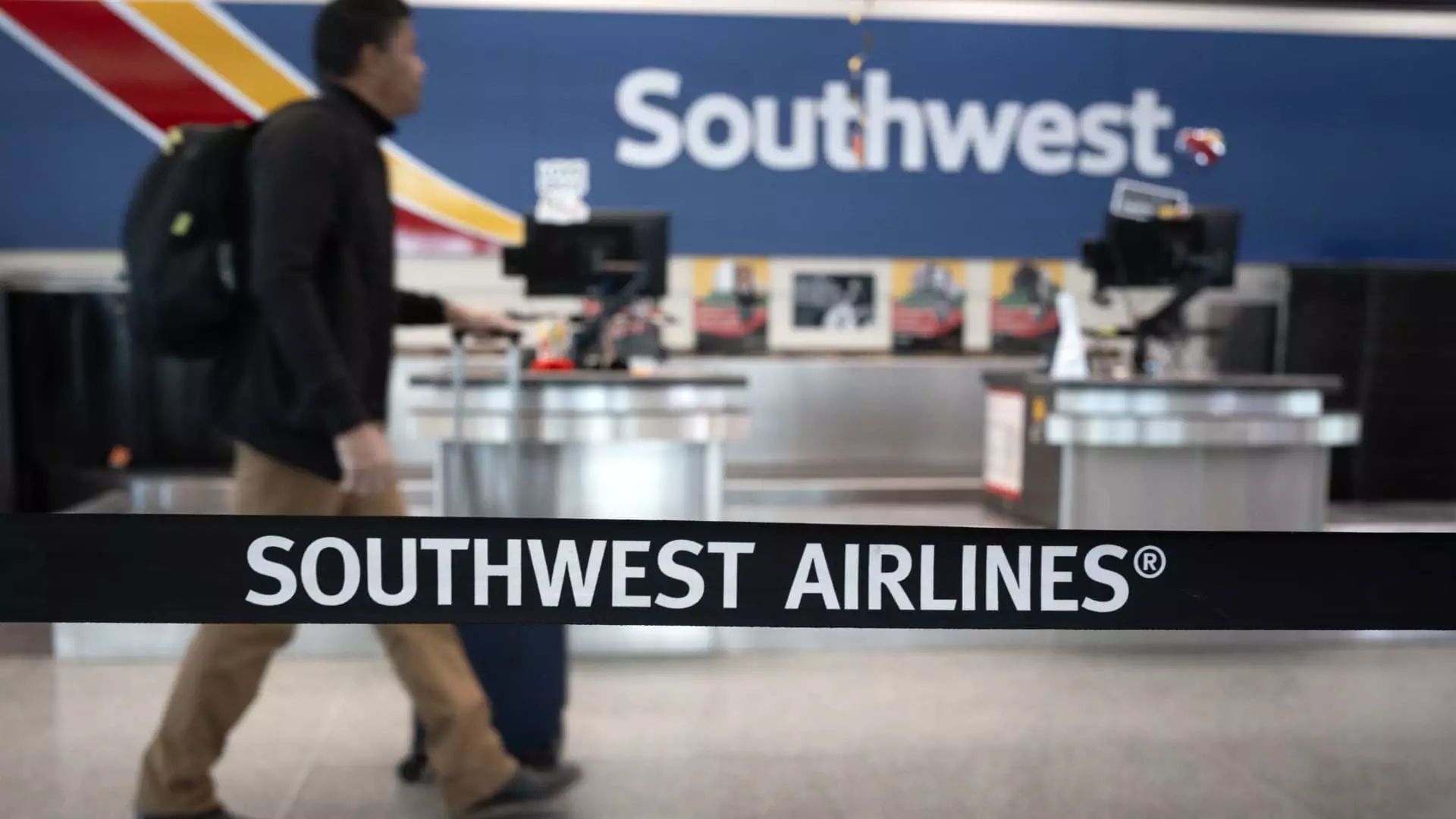In a shocking departure from its customer-friendly roots, Southwest Airlines is poised to charge passengers for checked baggage for the first time in over half a century. Commencing this Wednesday, this move marks a seismic shift in the airline’s identity, as it abandons its hallowed “two bags fly free” policy. Historically, this perk has distinguished Southwest from its competitors, fostering a loyal customer base that cherished the freedom of baggage without financial repercussions. Yet, amid mounting pressure to bolster revenues, Southwest executives have opted for a path that could compromise the very loyalty they once enjoyed. It appears that what once set Southwest apart is now being swept aside in pursuit of the almighty dollar.
The Weight of Economic Reality
The decision to monetize checked luggage cannot be viewed in isolation. Airlines across the board collected a staggering $7.3 billion in baggage fees last year, and the pursuit of profitability often leads to painful compromises. This paradigm shift is not merely a reflection of Southwest’s internal decision-making; it signifies a disturbing trend that challenges the established norms of air travel. As a liberal observer, one cannot help but lament the transformation of the aviation landscape into a realm where ticket prices are just the beginning of a passenger’s financial obligations. What was once a service-driven industry is morphing into a profit-driven entity, where the comfort of passengers is second to revenue necessities.
Pressures from Investors and the End of an Era
The impetus for this significant policy change stems not from customer feedback but from external pressures exerted by investors like Elliott Investment Management, who secured seats on the board of directors to instigate these revenue-oriented changes. The focus has shifted from customer satisfaction to shareholder gains, prompting questions about the ethical direction of the airline. Quick profitability gratification often leads corporations to ignore long-term consequences. For Southwest, the cherished open-seating policy and its distinctive business model are now on the chopping block, disregarding the values that initially earned its reputation. For travelers who have long enjoyed the unique nuances of Southwest’s service, this move can feel like abandonment—a betrayal of sorts.
The Reality of Compromise: Costs and Implications
While passengers with top-tier status and select loyalty program members can still check their first bag for free, the vast majority will soon be subject to fees resembling those of competitors, typically ranging from $35 to $40 for a first checked bag. The introduction of new fare classes like basic-economy also signals a shift towards more restrictive travel terms; these will limit changeability, depriving customers of freedom in their travel plans. The sense of urgency about securing favorable boarding arrangements—once a hallmark of the Southwest experience—will soon devolve into confusion as the airline prepares to implement seat assignments for the first time. As one witnesses the erosion of customer choice, it begs the question: is convenience really worth the cost?
Looking Beyond Change: What Lies Ahead
The ramifications of Southwest’s policy shift extend beyond immediate financial concerns; they suggest a broader cultural shift within the airline industry. Traditional notions of customer service are giving way to profit-driven models, introducing a new lexicon of basic fares and increased limitations. In their quest for economic survival and competitive viability, airlines are losing touch with the very essence of what travel should represent—a bridge across distances, not a vehicle for additional fees. Although Southwest executives assure employees that baggage fees won’t deter business, the entire landscape feels unsettled. Consumers may yet voice their discontent, using social media to share their outrage at what they perceive as a money-grabbing policy.
A Reflection of Broader Social Dynamics
The swift unraveling of Southwest’s longstanding policies serves as a stark reminder of the ongoing struggles faced by the average traveler. In an era where inflation and economic disparity are ever-present, the added costs of flying may serve as a microcosm of broader societal issues. Air travel should not morph into yet another privilege reserved for the affluent. For those who once celebrated Southwest’s offerings, the loss of free baggage may symbolize a more profound betrayal of shared values. The conversation surrounding this shift is not merely about airline policies but reflects broader tensions regarding corporate responsibility, customer loyalty, and economic inequality in a rapidly changing world.
As the airline prepares for this new phase, customers must grapple with the uncertainty of what it means for their travel experience. Each new fee and restrictive policy signals the deeper implications of what it means to fly in modern America, forcing consumers to reconsider their loyalties and stand up for the principles that once made air travel enjoyable.

